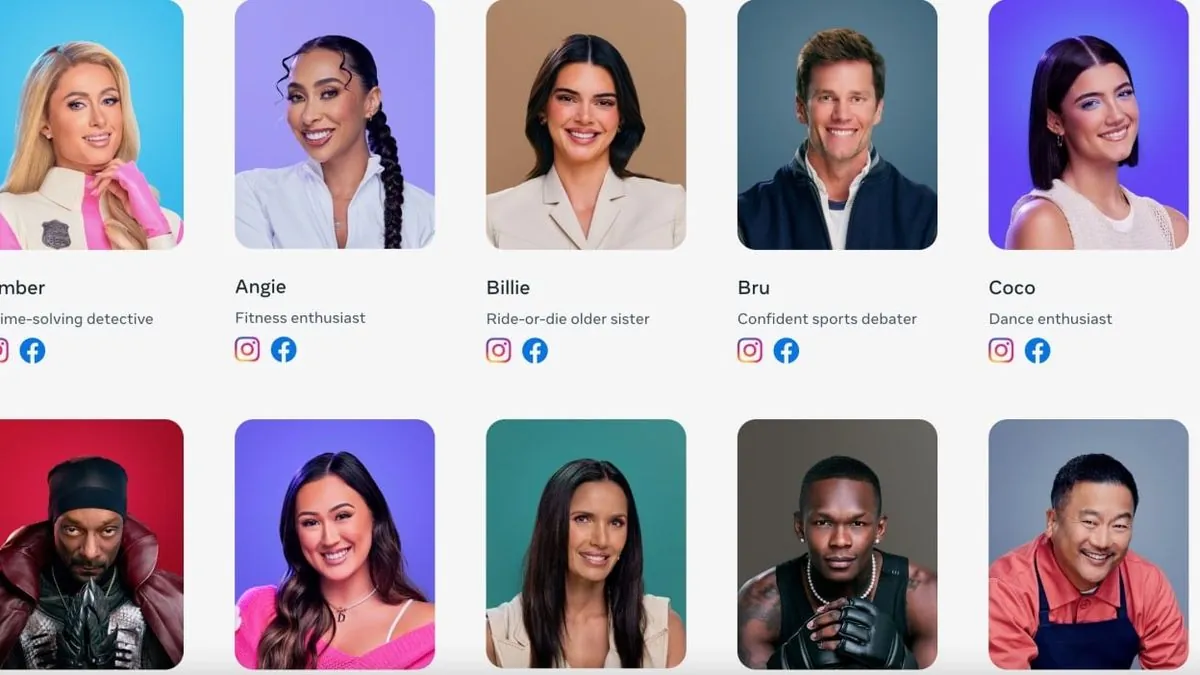Meta's AI Chatbot Adopts Celebrity Voices: A Step Too Far?
Meta introduces AI-generated celebrity voices for its chatbot, raising concerns about the future of human-AI interactions and the ethical implications of using real people's voices in artificial intelligence.

In a significant development for artificial intelligence, Meta has introduced AI-generated celebrity voices for its chatbot, Meta AI. This move, announced by CEO Mark Zuckerberg one year ago, allows users to interact with the AI using the voices of well-known actors such as Judi Dench, Awkwafina, and others.
The integration of celebrity voices into Meta AI, which is already utilized by 400 million users monthly, marks a pivotal moment in AI evolution. However, it also raises questions about the ethical implications and potential impact on human-AI relationships.
Meta AI's celebrity voices can discuss a wide range of topics, but notably lack the distinct personalities of the actors they emulate. This disconnect highlights the challenges in creating truly authentic AI interactions. The phenomenon known as the "uncanny valley," first described by roboticist Masahiro Mori in 1970, is evident in these interactions, where the AI's responses feel slightly off, creating an unsettling user experience.

The use of celebrity voices in AI is not a new concept. Companies like Amazon and Google previously offered similar features but discontinued them, suggesting potential limitations or lack of user interest. Meta's approach differs by incorporating these voices into a more advanced chatbot system, capable of engaging in more complex conversations.
"We just wanted to have a diversity of voices that would resonate with people."
However, this initiative raises concerns about the implications of using real people's voices for AI. It blurs the line between human and machine, potentially affecting how users, especially younger ones, perceive and interact with AI. Common Sense Media, a non-profit organization focused on children's media use, advises parents to emphasize that AI is not a friend and doesn't have users' best interests at heart.
The ethical considerations extend beyond user perception. As AI technology advances, questions arise about the long-term effects of associating real individuals with AI personas. This becomes particularly poignant when considering scenarios such as the potential death of a celebrity whose voice is used by the AI.
While Meta has taken steps to ensure transparency, with the AI explicitly stating it's not the actual celebrity, the very act of using recognizable voices may create a false sense of familiarity and trust. This approach could be seen as a shortcut to increase user comfort with AI technology, but it may come at the cost of authentic human-AI relationships.
As the global AI market is projected to reach over $1.5 trillion by 2030, and with over 60% of internet users interacting with AI daily, the importance of addressing these ethical and social implications cannot be overstated. The introduction of celebrity voices in AI chatbots may be just the beginning of a broader trend that will shape the future of human-AI interactions.


































